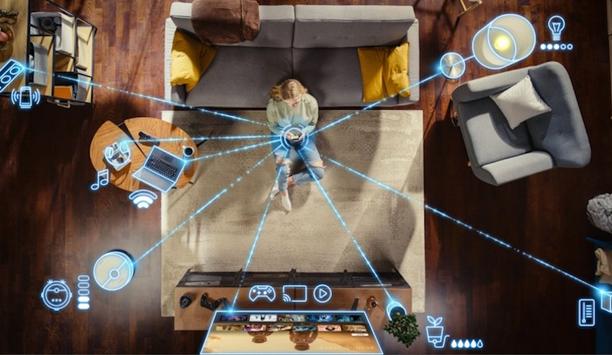Automation & Controls - Round table discussions
In today's smart homes, traditional climate control meets modern automation and connectivity. Technologies such as smart thermostats, home automation platforms, sensors, zoned heating and cooling, and artificial intelligence are combining to yield new levels of comfort for homeowners who embrace the smart home concept. We asked our Expert Panel Roundtable: How is the changing smart homes market impacting HVAC systems?
Digitalization is the integration of digital technologies into everyday life. In the context of HVAC, digitalization refers to the use of digital technologies to improve the efficiency, performance, and control of heating, ventilation, and air conditioning systems. Considering that digitalization is a major trend relating to HVAC, we asked our Expert Panel Roundtable: How does the digitalization of HVAC enable adaptation to evolving technologies and newer applications?
The HVAC market is a rapidly changing environment on a variety of fronts, from the introduction of new refrigerants to the increasing use of artificial intelligence to the embrace of interconnected systems in the Internet of Things (IoT) environment. We asked our Expert Panel Roundtable: How will the HVAC market change in the next five years?
Some of the technologies in the HVAC market are mature, although the newest innovation is always just around the corner. Newer systems seek to be more sustainable and energy-efficient, and digital control technologies play a role in maximizing their performance. Trends such as the Internet of Things (IoT) and smart systems are the basis for the newest connectivity and control approaches. These innovations tie into the broader environment of smart buildings. Systems are also providing remote acce...
For schools, improving indoor air quality (IAQ) is a basic function of HVAC systems, which also ensures a high comfort level for students, teachers and staff. Schools can be a lucrative market for HVAC systems, but there are challenges, such as long sales cycles and the lingering impact of the COVID-19 pandemic. We asked our Expert Panel Roundtable: What are the challenges for HVAC in serving the education/schools market?
A long list of regulatory and environmental trends is determining the future of the HVAC industry. Some trends will have an immediate impact, while others will come in force years from now, although the complexity of the industry requires that manufacturers and installers start planning now. We asked our Expert Panel Roundtable: What regulatory or environmental trend will have the greatest impact on the HVAC market?
Shifting demographics suggest a need for ‘new blood’ in the HVAC industry. It has never been a more important time to attract new applicants into the industry. Fortunately, there is a range of exciting opportunities for applicants of any age, including new disciplines and skills needed as HVAC systems transform in the digital age. We asked our Expert Panel Roundtable: What are the emerging career opportunities in the HVAC industry?
The practice of working from home soared during the coronavirus (COVID-19) pandemic and many observers see a likely continuation of the trend, as infection risks gradually subside. Both environments – home and office – depend on HVAC systems to keep occupants comfortable (and safe!). Therefore, the industry stands to be impacted whichever way the trend plays out. We asked our Expert Panel Roundtable: How will remote working affect residential and commercial HVAC?
The Internet of Things (IoT) is the network of physical objects embedded with sensors, software and other technologies to facilitate connecting and exchanging data with other devices and systems over the internet. Use of the IoT is expanding among both business and residential applications. However, there are hurdles to overcome, including security, privacy and networking challenges. As more HVAC devices embrace the IoT, we asked our Expert Panel Roundtable: What is the impact of the Internet o...
Leveraging Radiant And Hydronics To Help Achieve Decarbonization Goals
DownloadSealed Connectors In Harsh Environments
DownloadPowering And Cooling Next Generation Data Centers
DownloadDebunking Myths To Promote A Bright Future For Heat Pumps
DownloadOptimizing Comfort: The Ultimate HVAC Component Guide
Download












